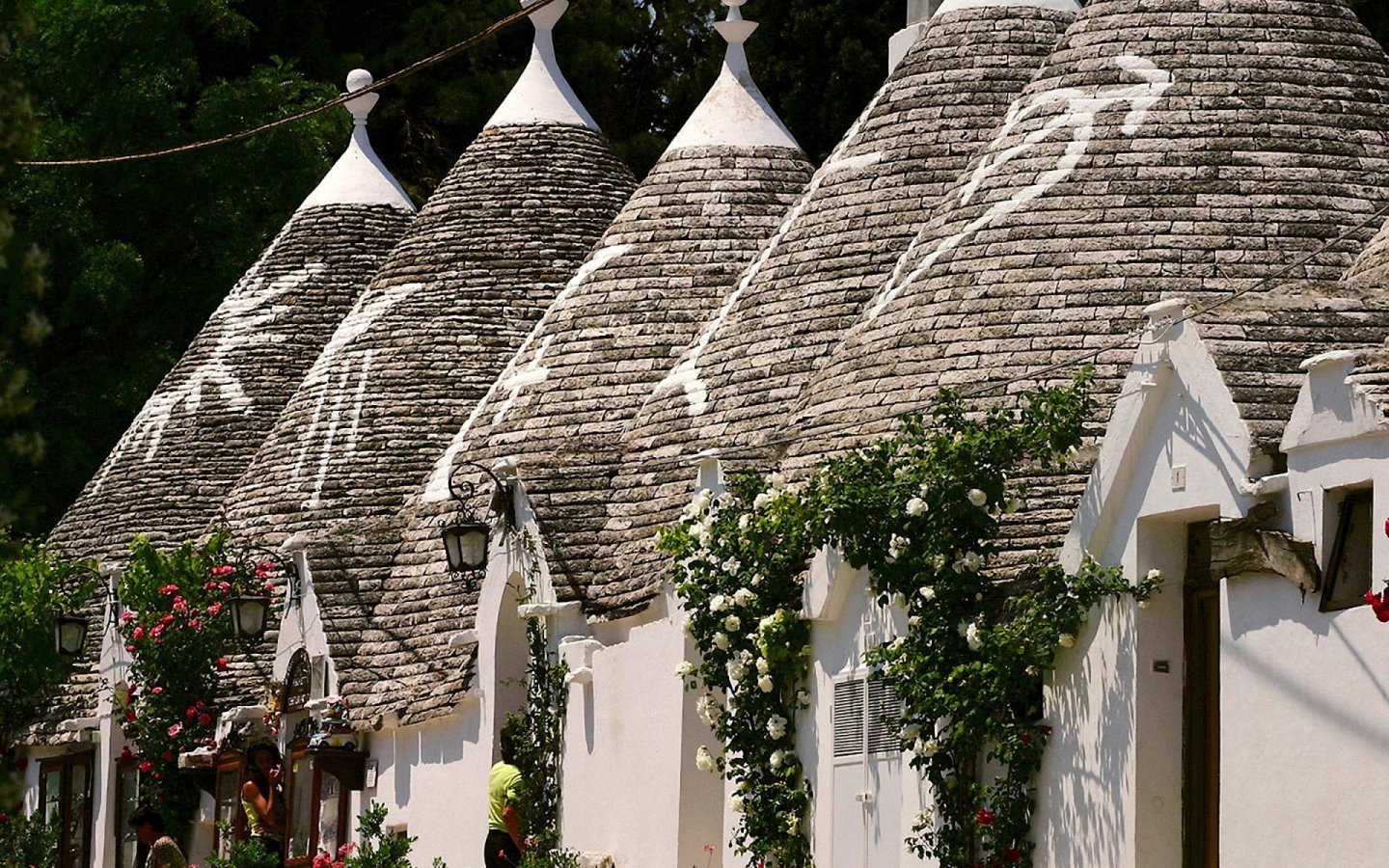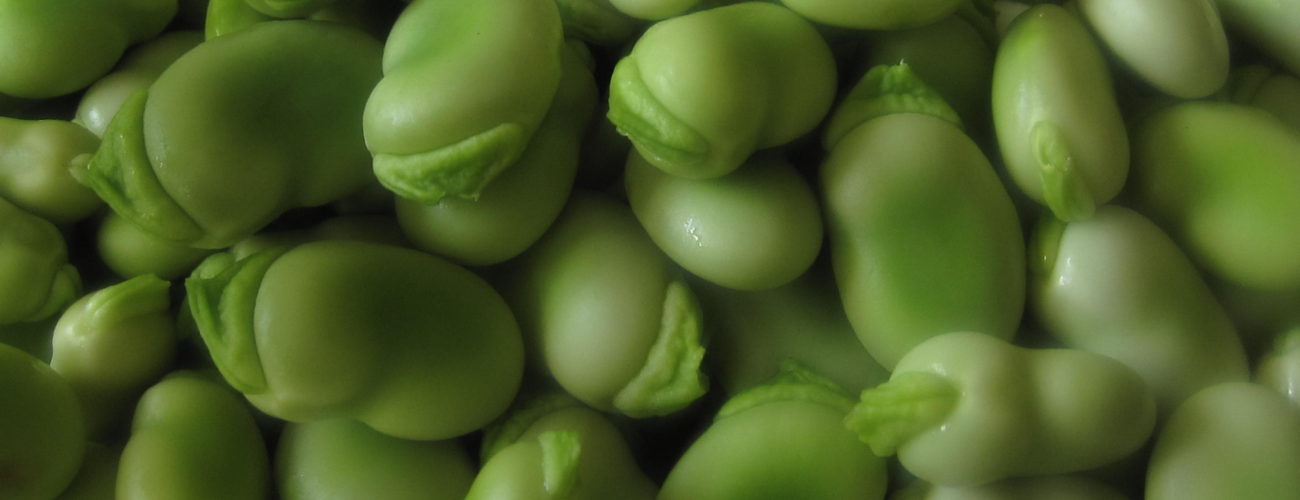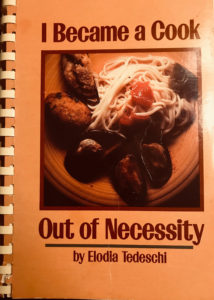Mashed Fava Beans -- One of My Dad's Favorites.
Not familiar to everyone, but Mashed Fava Beans is a great recipe from Aunt Elodia's Cook Book, "How to Be a Cook Out of Necessity."
Quick Anecdote
When I was in college, my roommate and I were talking about our parents favorite foods. I said, "Oh my Dad loved Depression meals." She replied, "Why was your dad so sad?"
During the Depression, my parents' ate meals that were good but also cost efficient. Mashed Fava Beans were definitely a staple.
Being 10 years or so years older than most of our friends' parents, our friends didn't even think of the reality of The Great Depression.
Let me introduce you to Mashed Fava Beans.
I have to admit; I like them too.
Aunt Elodia's Memories and Scoop on Fave Battute - Mashed Fava Beans
Pages 105-106
The Fava Bean (also know as a broad bean) is a staple food for the people of Southern Italy as well as the eastern shores of the Mediterranean Sea. The fava was eaten raw, right off the plant (like we do peas) as well as cooked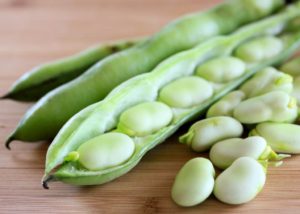 . Most of the beans were dried, with the skin intact, for use in the winter months. When the days grew shorter and winds brought a chill in the air, the housewives would gather around a brazier and remove the dried skins from the fava beans with a small, sharp knife. This also helped pass the time.
. Most of the beans were dried, with the skin intact, for use in the winter months. When the days grew shorter and winds brought a chill in the air, the housewives would gather around a brazier and remove the dried skins from the fava beans with a small, sharp knife. This also helped pass the time.
Today fava beans are found in all Mediterranean countries as well as in England, the United States, Canada and Mexico. They are now purchased at Italian, Greek and Middle East grocery stores either dried (with or without skin) or in cans. The fresh fava beans are still sold in fruit and vegetable stands during late May and June.
The recipe is an old-time favorite, passed down through the years and given to me by my dear sister-in-law, Antonietta Tedeschi Panaro. BTW that's my grandmother.
It's not difficult to prepare. Try it for a taste treat.
Recipe - Fave Battute - Mashed Fava Beans
1 pound dried fava beans, skinned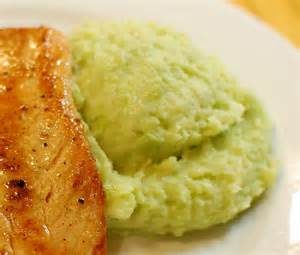
3 potatoes peeled and sliced
1 teaspoon of salt
1/2 cup olive oil
Soak the beans overnight, rinse and dry (another BTW -- if the beans are dried they are the color of hummus when done. If they are fresh, they are light green)
In a large kettle place the beans and potatoes. Fill with water to the level of the contents and place over medium-high heat. Bring it to a boil, then lower heat to simmer.
This will prevent the beans from sticking.
Simmer for 1 1/2 hours, always bubbling. When beans are soft to the touch, remove from the stove.
If there is too much water remaining in the kettle, remove some of it.
Place beans and potatoes in a large mixer bowl and begin whipping them at high speed. (Be careful of spattering!) After the initial breakdown, add about half the salt and oil. Continue beating then add remaining salt and oil. Make certain that the fava beans receive and absorb all the oil.
Serving ideas
These may be eaten instead of potatoes with a meat dish. My husband's people (That's my family. Her husband was my grandmother's brother) add pieces of hard bread and either dandelion greens or cardi (cardoons) to the fave and pinch of dried mint. It is also mixed together before serving. This is eaten with fried peppers, an onion salad, some slices of cheese, sliced tomatoes and crusty bread -- all part of a meatless meal and oh so good.
Save the leftovers for another day. In a frying pan pour 3 tablespoons olive oil or meat fat and a diced onion. Saute' the onion until it becomes golden, then add mashed fave. Mix well for ten minutes over medium heat. Served hot in place of potatoes ...
One Last Thing
This is recipe is something my non-Italian America friends know about. However, people like Martha Stewart and New York Times and Allrecipes and more have recipes for it.
And let's not forget Silence of the Lambs. Little known fact, this combination of food and drink actually has some meaning. It can be a substitute for depression medicine which the Hannibal Lecter character suffered from among other things. I read that somewhere; I know tons of ridiculous fact.
Wait, that's kind of ironic ... my parents called it a Depression meal cuz they ate it during The Great Depression and it is a substitute for depression meds.
Anyway, if you try this recipe, please let us know how you liked it.
"I Became a Cook Out of Necessity!
Copyright 1977/revised 1987
Author: Elodia Presenza Tedeschi
Wimmer Brothers Press
